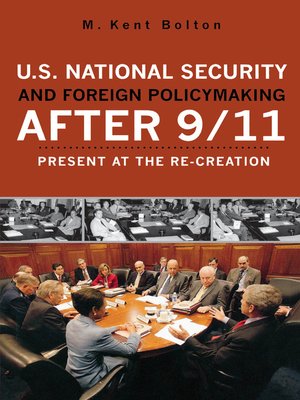U.S. National Security and Foreign Policymaking After 9/11
ebook ∣ Present at the Re-creation
By Kent M. Bolton

Sign up to save your library
With an OverDrive account, you can save your favorite libraries for at-a-glance information about availability. Find out more about OverDrive accounts.
Find this title in Libby, the library reading app by OverDrive.



Search for a digital library with this title
Title found at these libraries:
| Library Name | Distance |
|---|---|
| Loading... |
In December 2004 the 109th Congress passed and President George W. Bush signed the Intelligence Reform and Intelligence Prevention Act (IRTPA). M. Kent Bolton argues that IRTPA represented a change in the trajectory of U.S. national-security policy-the first fundamental, demonstrable change since the 1947 National Security Act (1947 NSA) became law creating a unified U.S. Department of Defense, the Central Intelligence Agency, and the National Security Council, among other entities. As the 1947 NSA presaged a new era of U.S. policymaking, so too did the IRTPA. As such the IRTPA represents an extraordinarily important piece of legislation for students and scholars of U.S. foreign and national-security policy. The author documents how and why it became law and how it has affected policymaking. He further argues that the changes begun by 9/11 and memorialized by IRTPA will likely affect U.S. national-security policymaking for decades if not generations.







